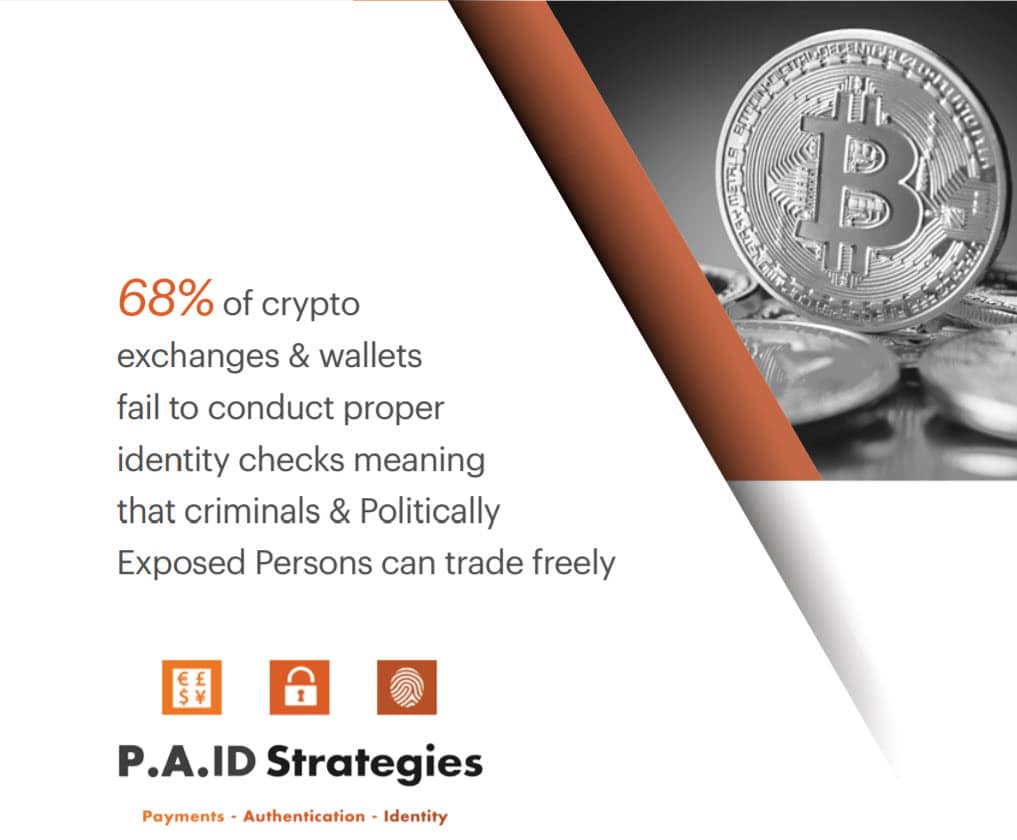
2019-10-22 03:00 |
Two reports from risk solutions group Lexisnexis assert that anti-money laundering (AML) and know your customer (KYC) policies can negatively affect a business’s bottom line and customer service significantly. A recent trip to the local post office for a money order certainly had a negative effect on my own experience, thanks to the same regulations, which make paying customers feel like they are suspected terrorists just for doing business.
Also Read: Bittrex Pulls Out of 31 Markets Citing Regulatory Uncertainty
Everyone’s a SuspectA recent visit to my local post office here in Japan, to get a simple USD money order for a passport, opened my eyes to just how far the KYC/AML freight train has already progressed. The small huddle of post office staffers were looking at each other nervously during the process, and when the transaction finally appeared to be finished, I approached the counter to take my documents and change. The woman pointed at the money in the tray, embarrassed. “This money,” she said in English, “how did you get it?” I stared at her blankly, half surprised and half annoyed at the question.
“Do you have a job?” she doubled down, politely. She informed me that on top of the $50 processing fee to create the money order, I would now have to wait for two weeks while it was approved. The awkward questions were the result of new anti-terrorism regulations that had been implemented in the recent past, and it became clear what had likely happened. She didn’t know how to run through the new protocol. The experience was off-putting and unprofessional. Not in small part owing to the implied assumption that I was a potential terrorist. All I could think at the time was “This is why we need crypto.”
The intrusive questions of regulators can be unexpected and over the top. Uncovering the True CostThe insanity of the anti-money laundering (AML) and know your customer (KYC) inquisition is just beginning. And like any inquisition worth its salt, nobody truly expects it. KYC and AML measures may be viewed as necessary evils in the crypto space by many, but they nonetheless stand to choke out crypto and businesses’ primary utilities and efficiency, while few seem too openly notice or care.
The Financial Action Task Force (FATF) continues constricting slowly but surely like a red tape boa, making policy “suggestions,” and devising plans to make sure they are enforced, while transactions ranging from crypto trading to getting a simple USD money order have become almost farcical for the level of privacy invasion they can entail. There is a quickening happening in recent years, and the squeeze is now being felt directly. None of this is, of course, good for business.
The 2016 Lexisnexis report for Asia, “The True Cost of Anti-Money Laundering Compliance,” states:
A majority of respondents (55%) indicated that AML compliance has a negative impact on their firms’ business productivity. An additional 15% felt that AML compliance actually threatens their firms’ ability to do business.
The 2019 Lexisnexis AML compliance study for the U.S. and CanadaCiting the groups most responsible for the pressure, the study explains that “Among compliance organizations, the international Financial Action Task Force (FATF) is seen as having the most influence on compliance operations, followed by the regional Asia/ Pacific Group on Money Laundering and APEC Counter-Terrorism Working Group.”
The new 2019 version of the study for the U.S. and Canada presents a similar picture, and further details who gets hit hardest by centralized, force-backed regulatory bodies like FATF: small business. “[The] cost of AML compliance as a percent of total assets is higher among smaller firms (up to .85%) compared to mid/ large firms (up to .08%). This is driven by the fact that there are certain overhead investment requirements regardless of scale,” the report elaborates.
Customer Service Doesn’t Like It EitherNot only is the average annual compliance spending for U.S. and Canadian firms high, according to the 2019 study, considering “The projected cost of AML compliance across all U.S. and Canadian financial services firms is $31.5B,” but these practices can be bad for worker morale and customer onboarding. The 2016 report notes:
The opportunity costs are seen as highest in China and Thailand, where 36% and 26% of respondents respectively estimated that AML compliance leads to the loss of 5 – 6% of account opportunities.
Many potential clients, turned off as I was at the post office by prying questions and unprofessional presumptions, simply leave during the application or onboarding process. The employees that have to process myriad account alerts, intrusive interviews and convoluted application processes also suffer. It seems few people enjoy accusing complete strangers of being evil criminals. The Asian report notes that “Seventy-six per cent of respondents were concerned or very concerned about job satisfaction issues in their AML compliance departments. Survey results also indicated that low morale has a negative impact on compliance operations productivity.”
Where Does It End?Real ID is currently being implemented in the U.S., making it impossible for citizens of the country to take a domestic flight or enter a federal facility without it. In lockstep with FATF guidelines, tax agencies worldwide are cracking down on users of cryptocurrencies, demanding payment in the absence of clear and simple guidelines, and via money that’s not rightfully theirs. Workers at the post office are forced to rudely ask complete strangers if they even have a job. Some are questioning how far all this can go. After all, life is inherently risk-laden. Perhaps the best bet for all the regulators of the world is to put everyone in padded rooms (except themselves, of course) with straitjackets, finally achieving the violence-wrought “peace” they’ve been ostensibly seeking for so terribly long. After all, it’s better safe than sorry, right?
Op-ed disclaimer: This is an Op-ed article. The opinions expressed in this article are the author’s own. Bitcoin.com is not responsible for or liable for any content, accuracy or quality within the Op-ed article. Readers should do their own due diligence before taking any actions related to the content. Bitcoin.com is not responsible, directly or indirectly, for any damage or loss caused or alleged to be caused by or in connection with the use of or reliance on any information in this Op-ed article.
Images courtesy of Shutterstock, fair use.
Did you know you can buy and sell BCH privately using our noncustodial, peer-to-peer Local Bitcoin Cash trading platform? The Local.Bitcoin.com marketplace has thousands of participants from all around the world trading BCH right now. And if you need a bitcoin wallet to securely store your coins, you can download one from us here.
The post Bad for Business: How KYC/AML Makes Everyone a ‘Terrorist’ appeared first on Bitcoin News.
origin »Bitcoin price in Telegram @btc_price_every_hour
AML Bitcoin (ABTC) на Currencies.ru
|
|





















